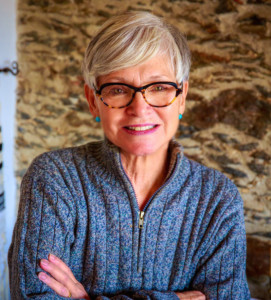“Should I Go Back to Work?”
Sheila’s face said it all. In recent months Dina noted that her best friend rarely smiled and seemed out of sorts, sad and drained of enthusiasm. Finally Dina broached the subject; “Sheila, what’s wrong. In all our years I’ve never seen you like this? “
That’s when Sheila opened up. “I used to do so much,” she said. “I loved my job and really never wanted to retire. But I’m coming up to 74 on my next birthday. I want to be useful again but who’s going to hire and old lady like me?”
Sheila’s dilemma is a common one but also one that has not gone unnoticed – at least not by the Bureau of Labor Statistics that began to examine an interesting trend. In 2017, according to the Bureau’s job report, 19 percent of seniors ages 70 to 74 were still working at least part-time. The agency also notes that seniors are working nearly 10 years beyond the traditional retirement age of 65 years old.
Danielle Kunkle Roberts is a member of the prestigious Forbes Financial Council and contributes regularly to the online publication, “Boomer Benefits.” Roberts writes (November 23, 2018) that “back when Social Security and Medicare were created, 65 was the normal age at which people retired.” Now, more than a half century later, things are very different. Roberts reports that “jobs for senior citizens are on the rise across America, and it’s a really good thing.”
In response to Sheila who asks, “Who’s going to hire an old lady like me?” apparently there are dozens of companies that are looking for the skills, temperament and, most of all, the work ethic that seniors bring to the workplace.
In her article “How Companies are Making Room for Baby Boomers to Stay in the Workforce,” Roberts offers specific examples of jobs for seniors and cites the CVS pharmacy company as one of the best. They’re called the “CVS Snowbirds,” and represent a unique program that has been a front runner in senior employment. The company provides flexible scheduling options “that encourage seniors to fill a variety of available jobs from cashiers to photo techs. The company feels that would-be retirees add value as they can directly relate and interact with the company’s target market.”
Other national companies have worked actively to retain and attract seniors to their employee pool. The Marriott Corporation created the “Flex Options” program specifically designed to help older Marriott team members transition from physically demanding jobs into other roles by offering on-the-job training that allows them to acquire new skills.”
Seniors who worked as contractors or who have expertise in the trades are valuable resources to Home Depot whose program, “Senior Experts,” employs a work force that taps into the decades of experience that “boots on the ground” seniors bring to the job. As consultants, these seniors are contributing their building talents and time-tested ideas without engaging in the hard labor that once characterized their work day.
In our Jewish tradition we call it “zaken,” the wisdom that comes with age, and thanks to medical advances and a general societal emphasis on wellness, seniors have longer life spans and in general are healthier than the elderly of generations past – a societal advancement that allows seniors to share their “zaken” with colleagues and co-workers.
Couple that with the fact that many jobs require less physical exertion, many seniors who return to the workforce, either full time or part time, find that it is easier to work well past retirement age. What that means, Kunkle Roberts says, is that “for the first time in modern history, there are 5 generations of Americans working together, collaborating and coexisting in our workplaces.”
Rabbi Dayle A. Friedman, who writes on the “Positive Aspects of Aging,” for the Reconstructionist Jewish movement’s innovative “Ritualwell” program, puts it best when she says, “The guidance of elders is seen as critical to the survival of the people of Israel: For one who takes advice from elders never stumbles.” (Exodus Rabbah 3:8).
Seniors have wisdom, experience and practical skills that are essential in today’s world of work. US companies are becoming more and more aware of what seniors have to offer as they create opportunities that celebrate “zaken,” the wisdom that comes with age.

